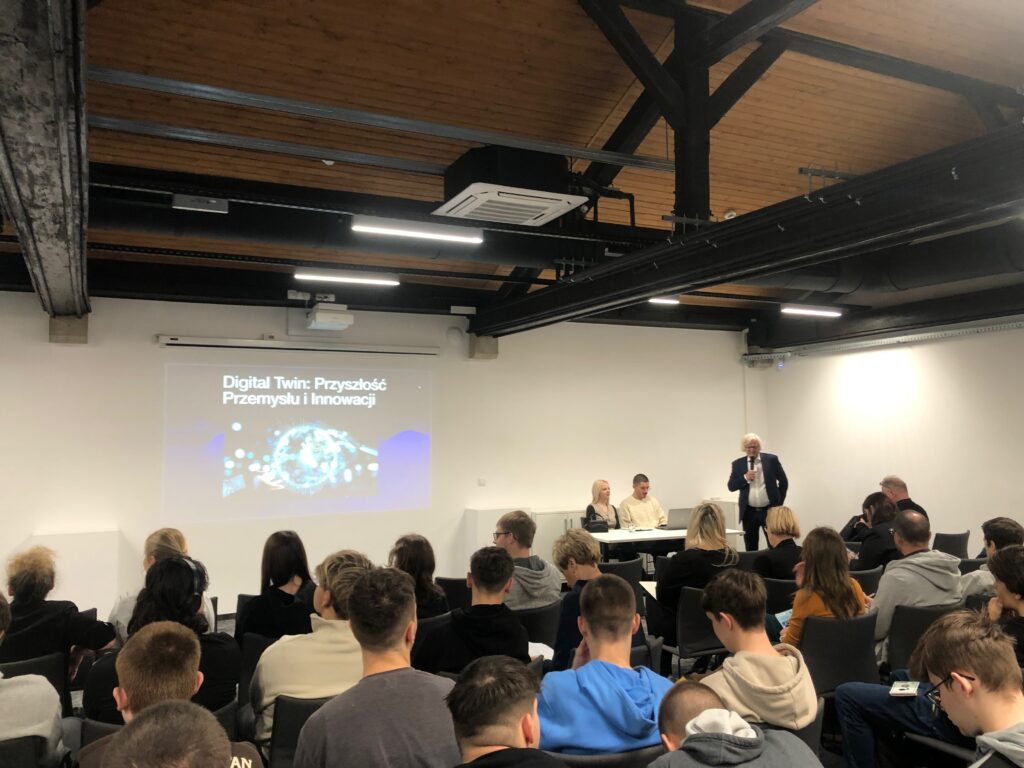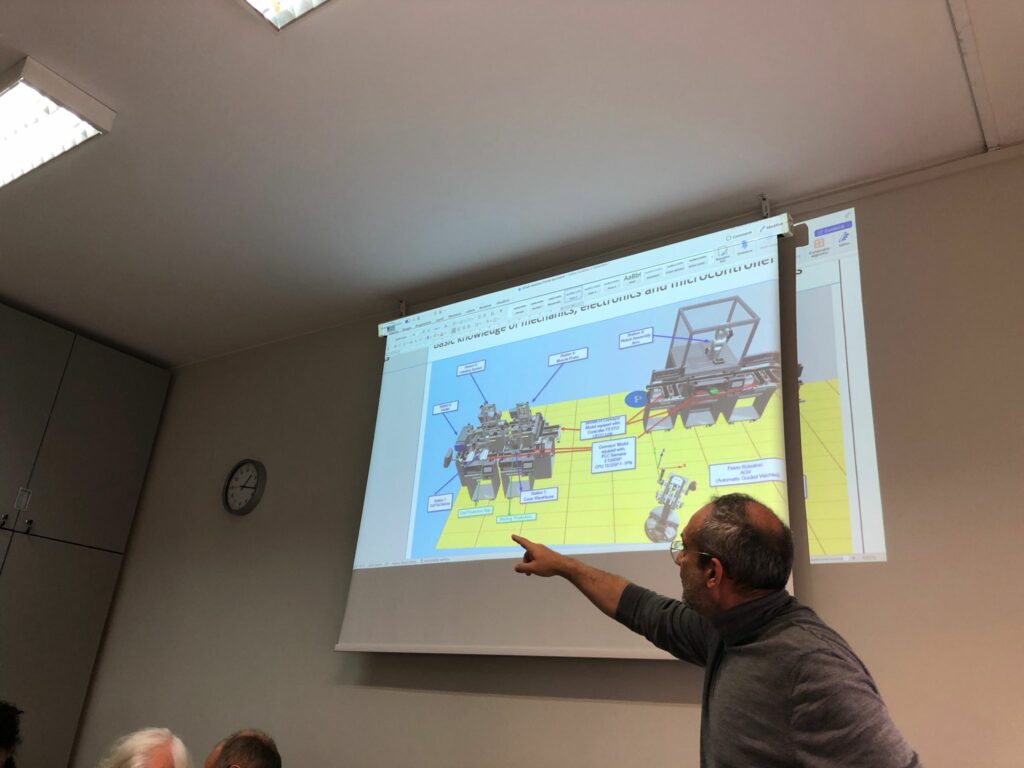Exploring the Future of Education: DiTwin Project Brings Digital Twin Technology to Vocational Schools
On Tuesday, 10 December 2024, the DiTwin project hosted a multiplier event at the stunning Museum of Engineering and Technology in Kraków. The event was attended by 23 vocational school teachers, representatives of foundations, NGOs, specialist vocational education institutions, and 49 vocational school students. The meeting’s agenda included a presentation by second-year journalism students from UKEN, who introduced the concept of Digital Twin technology. Dr. hab. Krzysztof Gurba, a professor at UKEN, also delivered a presentation outlining the DiTwin project’s concept, assumptions, expected outcomes, and current progress. At the conclusion of the event, participants had the opportunity to network and engage with project contributors. The first presentation, focused on explaining what Digital Twin technology is, was delivered by second-year journalism students from UKEN: Kinga Tokarczyk and Mikołaj Kawa. During their talk, they defined a Digital Twin as “a virtual copy of a real object, system, or process.” The students further elaborated on the applications of Digital Twin technology in various fields: They also highlighted the benefits of Digital Twin technology, which include: However, they also acknowledged the challenges associated with its implementation: Dr. hab. Krzysztof Gurba, Prof. UKEN, delivered the second presentation, focusing on the DiTwin project’s relevance to vocational education. He explained how Digital Twin technology can revolutionize education. Prof. Gurba emphasized that the project aims to prepare young people for the challenges of Industry 4.0 and 5.0 by leveraging modern technologies as educational tools. He highlighted the international collaboration behind the project, which includes partners such as Learnable (Italy), Digital Smart (Italy), Innovation Frontiers (Greece), Training Vision (Ireland), Malaga TechPark (Spain), Universidad de Malaga (Spain), and the University of the National Education Commission in Kraków (Poland). The project’s outputs include: Prof. Gurba explained that the project focuses on three key areas: 3D printing, robotics, and process automation. The platform developed as part of the project will offer: To conclude, Prof. Gurba announced upcoming pilot tests and a demonstration event for the system. He invited teachers, institutional partners, foundations, and training organizations to collaborate in developing the teacher handbook. He also announced a focus study scheduled for January 2025.


